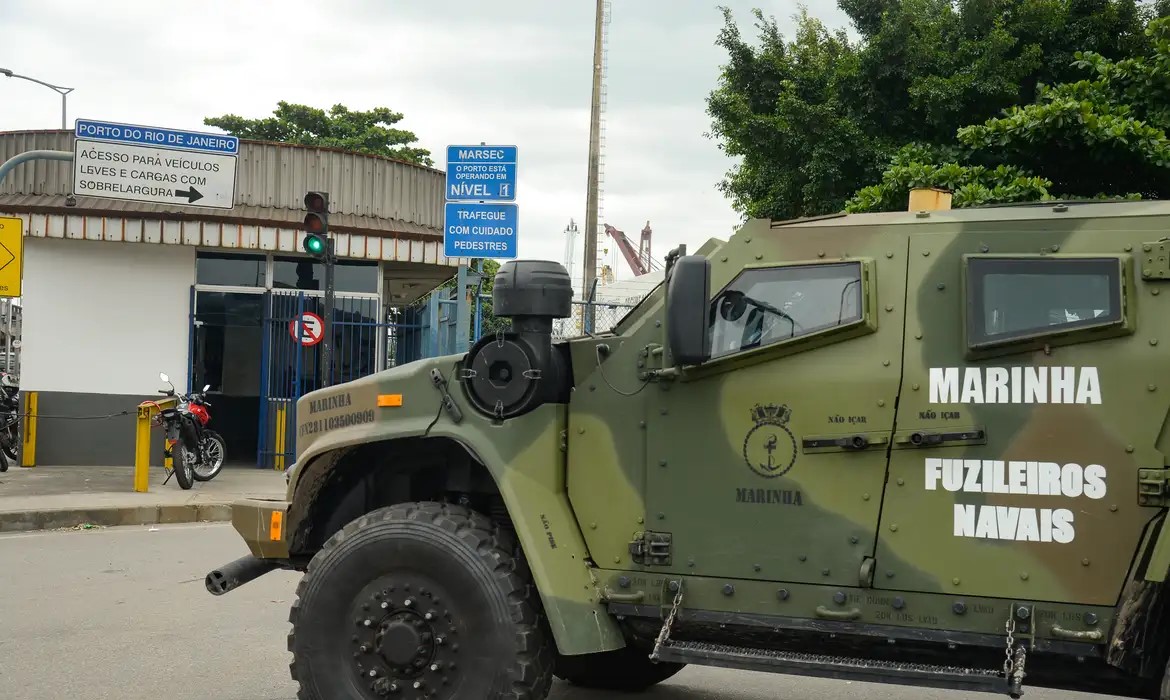This month, President Luiz Inácio Lula da Silva announced an operation to temporarily place members of the military in ports and airports in the states of Rio de Janeiro and São Paulo to fight organized crime. He also gave the military the task of strengthening border control to prevent and combat illegal trafficking. A president that promised to invest in crime prevention in his electoral platform chose the old path of militarizing security.
Despite a moderate decline in violent deaths in recent years, Brazil still has an elevated homicide rate of 23.3 per 100,000 people. This year, security became the most frequently cited concern for Brazilians, along with healthcare, according to pollster Datafolha. In the past two months, shocking events in Rio de Janeiro strengthened the population’s impression that authorities lack control over security. So-called militia groups, which are criminal groups mostly made up of retired and some active members of security forces, burned over 30 buses around town to protest the death of one of their leaders in a police operation. “The situation has reached a very serious point. Violence is getting worse by the day, so we decided to use the federal government’s potential to help states get rid of organized crime,” Lula said. Although fighting crime is a responsibility of states in Brazil, the federal government is always under pressure to address the problem and help craft a coherent strategy.
Brazil illustrates a trend we’ve seen elsewhere in the region: the blurring of the lines between police and military work. Since the end of the Cold War, when their greatest enemy was communism, the armed forces have been given a variety of roles, including but not limited to, fighting drug trafficking. The militarization of security is rooted in society’s desire for punitiveness, as fearful constituents endorse tough-on-crime policies. In a 2022 national survey, 66% of respondents were in favor of lowering the age at which people can be criminally prosecuted as adults (currently 18 years old). Adding to this picture is the good reputation the military still largely enjoys among the general population, despite significant recent setbacks under the administration of former President Jair Bolsonaro, himself a former Army member. Ordering the military (a trusted institution) to do police work could make it seem like the government is finally doing something against crime and violence.
The involvement of the Brazilian military in counternarcotics activities occurred mainly from the 1980s onwards. As the dictatorship ended, state police units remained as military entities, in theory as auxiliary to the armed forces, just as they were during the military regime. On top of that, the security apparatus incorporated old “hardliners” from the military. As politicians did not address the issue of police violence during the political transition, unlawful police practices continued to exist in democratic Brazil, and prevail to this day.
On the other hand, urban violence pressured state governments to use the armed forces in policing tasks, expanding their scope of domestic action. The federal government deployed the armed forces for the purpose of “ensuring law and order” (so-called Garantia da Lei e da Ordem operations, or GLO by their Portuguese acronym), which implied they had jurisdiction over arrests and house searches in some favelas. Some large GLO operations transpired in the 1990s and 2000s. Despite no effects in terms of controlling criminal violence in the long term, the military was in the media spotlight and enjoyed enhanced political influence. Communities reported illegal house searches, aggressions and there were some cases of extrajudicial homicides.
Old habits die hard
Once in office, Bolsonaro brought the military even further into political prominence. The number of military officers in ministerial positions was the highest since the country returned to democracy. In 2019, army soldiers fired more than 80 rounds at a car in a northern neighborhood of Rio de Janeiro, killing musician Evaldo Rosa dos Santos and injuring his family and a passerby. The army said they mistook them for gang members, as the security forces were doing an operation nearby. A military tribunal found them guilty, and they were sentenced to 28 to 31 years in prison. The defendants have appealed and will remain free until a final court ruling.
Elected in October 2022, the Lula government promised to break with Bolsonaro’s approach to security. His candidacy’s electoral manifesto mentions the need for reforming police training and education, adding the dimension of damage reduction to drug policies and investing in intelligence services for solving crimes. Indeed, historically, security policies have emphasized more aggressive policing techniques, like patrolling streets, than preventive and investigative police work. Yet, an administration whose primary concern is to ensure governability has proven weak in changing the track of public security policies, since that would require political capital the administration currently does not have.
The main reason why the government tasked the military with this security mission (in spite of other countries such as Mexico doing the same without effective results) is to keep power-hungry officers busy. Violence upticks are centered in the north and northeast now, but the bulk of the current operation in ports and airports will be in the southeastern states of Rio de Janeiro and São Paulo. The government has not even been clear about what exactly the military will do in ports and airports. The absence of comprehensive models that combine respect for human rights and efficiency to control criminal violence needs to be addressed. A military solution to the problem of crime and violence in Brazil is expensive and costly in terms of money and human rights. Reforming the police in Brazil remains an urgent task.
—
Anaís Medeiros Passos is associate professor of sociology and political science at Universidade Federal de Santa Catarina (UFSC).





